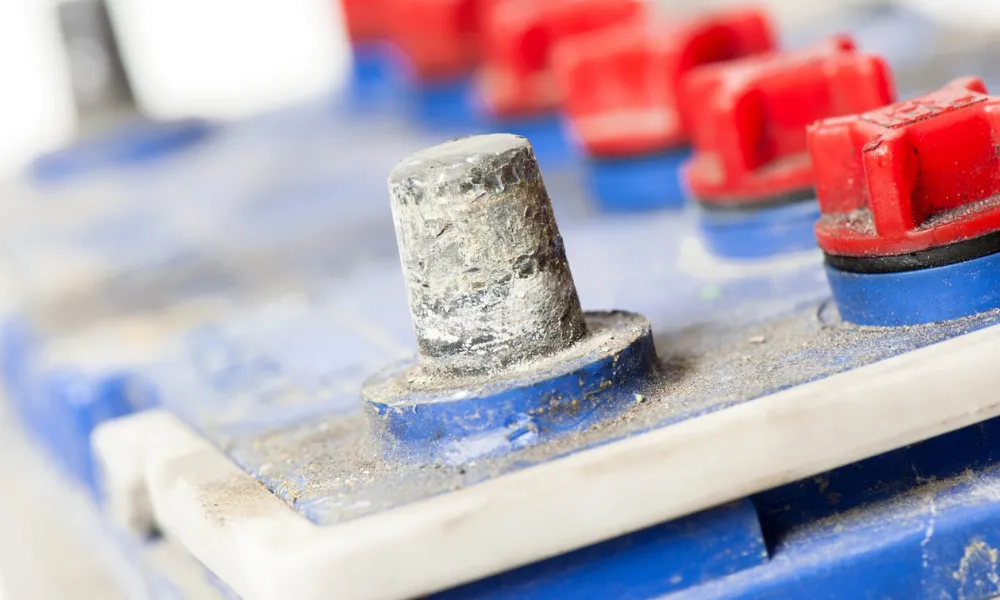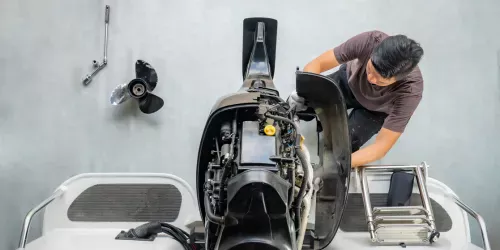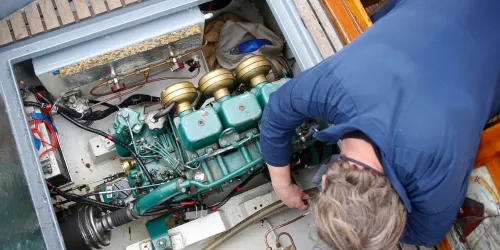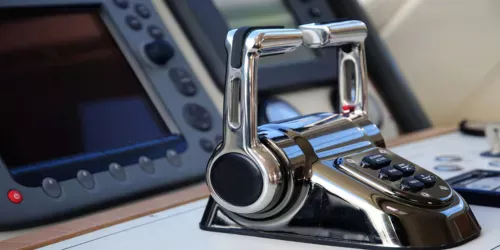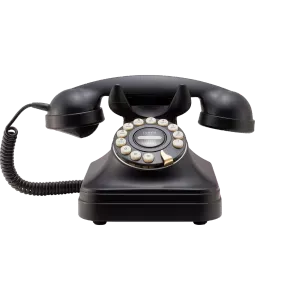On a boat, a distinction is made between the starter battery, used to start the engine, and the service battery, used to power on-board electrical equipment. The former needs to supply a lot of energy over a very short period of time, while the latter must be able to operate for longer, providing just as much energy.
The starter battery is immediately recharged by the engine alternator and does not need to withstand a particularly heavy discharge. A service battery, on the other hand, is used over the long term and is subject to a slow, deep discharge.
There are also mixed batteries, or dual batteries, which can meet both uses.
Choosing batteries for your boat
First of all, the capacity needed on board must be widely estimated. It is advisable to allow a significant margin to avoid the risk of choosing equipment that is not sufficiently efficient.
The boater will take into account the equipment's charge capacity, depth of discharge, life span - or number of cycles - and recommended conditions of use. Depending on these elements, he will choose among different battery technologies :
- Liquid lead acid battery : It should be installed in an insulated and sealed area, recharged often and used infrequently. With a significant self-discharge, it is often chosen as a starter battery. It is the most affordable financial solution, but a solution that lasts little over time.
- The AGM lead battery : A little heavy and bulky, the AGM lead battery is waterproof, and compared to its competitors, more resistant to vibration and extreme temperatures. It benefits from a high intensity, fast charge and slow discharge. Its price is quite high and its life span is limited.
- Lead gel battery : The lead gel battery is a particularly strong model, resistant to significant temperature changes. Waterproof, it benefits from a slow discharge, a large storage capacity and a high power. It has a longer life than a lead-acid battery, and although it can be fully discharged, it must be fully charged regularly. Strong vibrations should be avoided with it.
- Lead carbon battery : This is a service battery that supports deep discharge and partial charge operation. Compared to a gel battery, it lasts longer.
- Lithium battery : This is the least imposing, lightest, but also the most expensive equipment. With a long service life, the lithium battery can, too, be fully discharged or run on partial charge. But it charges faster! On the other hand, it is not suitable for sailing areas where the temperature is below 5° C.
Whatever the technology chosen, in the event of the constitution of a battery park, the boater must choose batteries of the same type, capacity and age.
Possible failures on a marine battery
If you notice a problem with your boat battery, the first thing you should do is check the connections, wiring, switches and fuses on your equipment. If you have checked these points without noticing anything in particular, it is probably the battery itself that is at fault.
Depending on battery technology, there are many possible causes of failure : self-discharge, overcharging or overheating, poor long-term storage, freezing, association with damaged equipment...
This can be a lack of electrolyte, damaged active mass, corrosion of the grids or terminals, sulphation, stratification, leakage or thermal seepage... and this can have dramatic consequences, such as a battery explosion. In practice, when sailing, a loss of starting capacity or reserve on board can really handicap you, even put you in danger.
Whatever the situation, it's important to have the problem properly diagnosed by a professional in order to remedy it quickly and avoid making it worse. Don't hesitate to provide as much information as possible. For example, do you know whether the damage occurred suddenly, or over several months ?
Not all situations are irremediable ! Some times, disassembly, maintenance and cleaning of the equipment are enough to solve a problem. For sulfation, for example, there are electronic chargers that can re-mix the electrolyte and restore proper battery operation.
Good practices for a boat battery
For the proper preservation of your batteries, we recommend regular maintenance. Techniques vary according to technology, but certain best practices are applicable to all types of marine batteries :
For the installation of your park, choose an airy, insulated location, where your batteries can be fixed horizontally, safe from shocks and hazards. Make clean, clear connections, which you'll check and clean regularly.
In use, avoid overvoltage, overcharging and deep discharging. To preserve your equipment, fully recharge your battery after use, as often as possible, before it is completely discharged. Make sure your charger voltage is suitable for your battery. Remember that while recharging a boat battery at a lower amperage lasts longer, it also promotes longer battery life.
Use suitable accessories - couplers, chargers or circuit breakers - and don't leave the charger permanently connected if you're not equipped with a regulator. Regularly checking the proper operation of your fleet with a battery monitor can also help you quickly detect any anomalies.
Finally, like your engine, batteries need to be winterized. If your boat is dry, store them in a cool, dry and ventilated place, and recharge them regularly following the manufacturer's recommendations. If your unit is in water, your batteries left on board can be kept floating thanks to a small solar panel.
To find the marine battery that's right for you, or to benefit from the skills of a professional to diagnose a problem, maintain or repair your equipment, the Boatngo team is there for you !
Contact us to tell us about your needs and be accompanied by an expert by simply clicking here !

